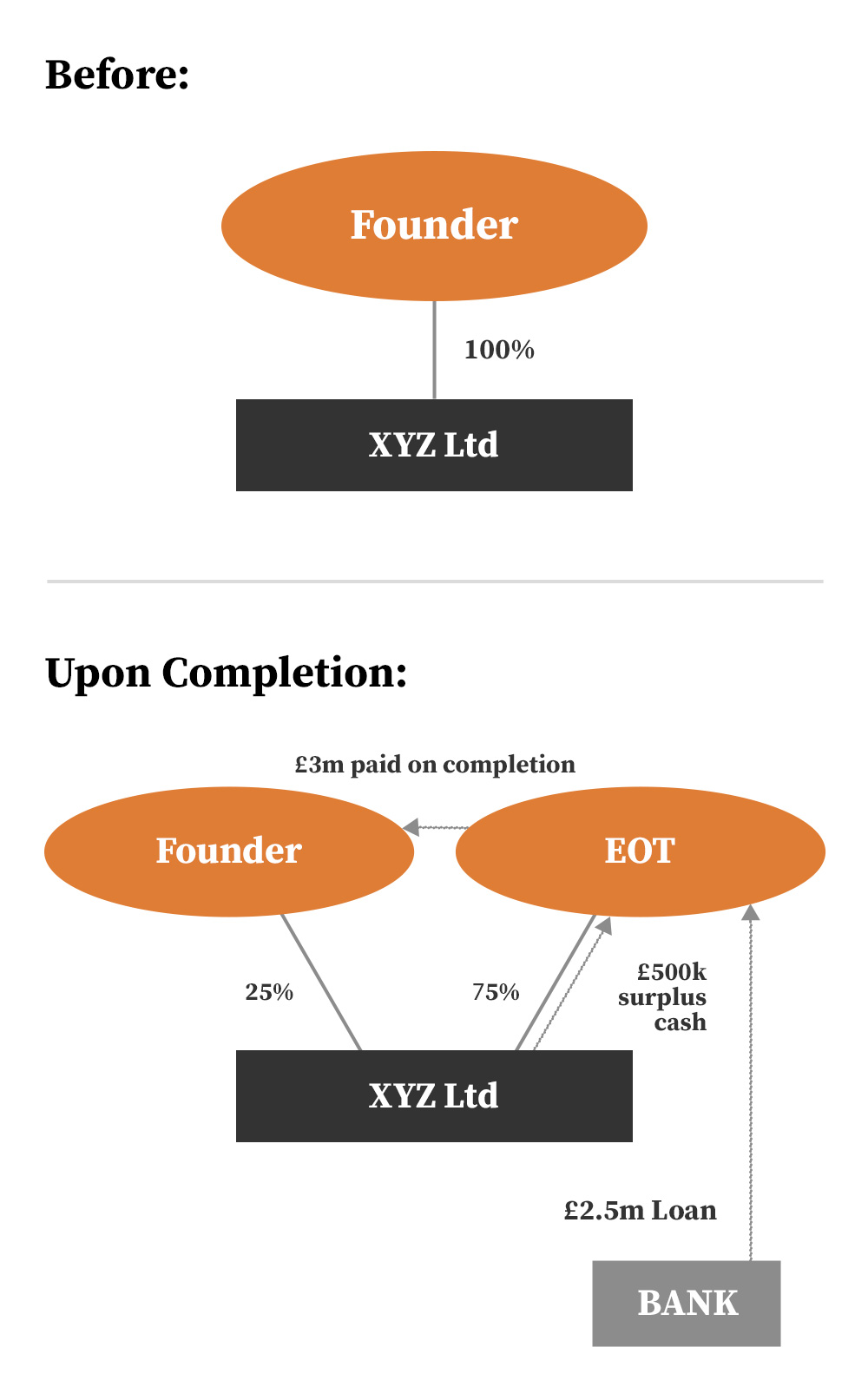Employee Ownership Trusts
An Employee Ownership Trust (EOT) is an indirect form of employee ownership in which a Trust Company holds a controlling stake in a trading company on behalf of all its employees. There are an increasing number of employee-owned business across the UK with the most famous being John Lewis. A sale to an EOT represents an alternative for shareholders to a sale to a trade buyer, sale to private equity, management buy-out or management buy-in.
How does a business qualify?
Any company that is a Limited company, Limited Liability Partnership or a company that is part of a larger group will qualify if it meets the key criteria.
Key criteria:
- The company must be a trading company or the holding company of a trading group.
- The EOT must hold at least a 50.1% controlling interest in the company on an ongoing basis.
- The number of continuing shareholders who are directors or employees (and any persons connected with such employees or directors) must not exceed 40% of the total number of employees of the company or group.
- EOT shares must generally be held for the benefit of all eligible employees on the “same terms”, however the EOT may distinguish between employees based on remuneration, length of service and hours worked.
What are the benefits of an EOT?
Shareholder benefits
The selling shareholders can sell their shares for full market value (an independent valuation is required) without incurring any Capital Gains Tax or Income Tax on the proceeds. Not all shares are required to be sold and selling shareholders are able to remain in their positions as directors and/or employees on market rate remuneration packages post share sale, if they want to. The EOT must purchase a controlling stake of at least 50.1% to qualify.
An EOT creates an immediate buyer, addresses succession issues and is generally seen as a “friendlier buyer” than a trade buyer, which means the sales process may be quicker and there is no need to provide confidential information to third party trade buyers, who may be competitors.
The valuation for the shares sold to the EOT is a 'full' valuation, not a discounted valuation.
Employee and Company benefits
An EOT allows for employees to share in the financial success of a company through the equal distribution of a percentage of profit amongst all employees in the form of a bonus. The company can pay a PAYE-free cash bonus of up to £3,600 per employee per year (NI is payable). If and when the EOT sells its shares to a third party in the future, the employees will share in the proceeds (the sale proceeds are taxed).
Other employee ownership benefits can include:
- Greater employee engagement and commitment
- Reduced absenteeism
- Greater drive for innovation
- Improved business performance
- Good for recruitment and retention.
How does an EOT work in practice?
- An EOT must first be established as a corporate vehicle via the incorporation of a Trustee Company. The selling shareholders sell shares to the Trustee Company under a Share Purchase Agreement at fair market value which has been independently determined by an expert.
- The Trustee Company (EOT) is controlled and governed by a Board of trustees who must act in the best interests of all the employees as a group at all times. The Board of trustees typically comprises a minimum of three individuals; the selling shareholder, an employee representative and a professional trustee (e.g. retired solicitor or accountant). The selling shareholder must not be able to control the Board of trustees.

- ‘Surplus’ cash in the business at the time of sale, after allowing for working capital headroom can be used to make an initial payment to the selling shareholders. It may also be possible to obtain a loan from a bank or other lender to increase the amount paid on completion.
The ‘before and after’ structure of the sale of a business (XYZ Ltd) to an EOT is illustrated by the graphic, based on a business valued at £5 million (including £500k of surplus cash in the business at completion), with the founders deciding to sell a 75% stake to the EOT (value 75% x £5 million = £3.75 million), funded by a bank loan to the EOT of £2.5 million, the £500k surplus cash and deferred consideration of £0.75 million due to the founders:
In this illustration, the interest and capital repayments on the bank loan will be funded, during the term of the bank loan by dividends or loans from XYZ Ltd to the EOT.
The deferred consideration payments to the founder (£0.75 million) will be funded in the same way, typically after the bank loan has been repaid.
Hence, the cash generated by the after-tax profits of the business during the years following the sale will fund the repayment of the bank loan and deferred consideration.
Summary
An EOT can be an attractive alternative to for selling shareholders, with many benefits for the shareholders, employees and company.
Whether an EOT is the right option will depend on the individual circumstances.